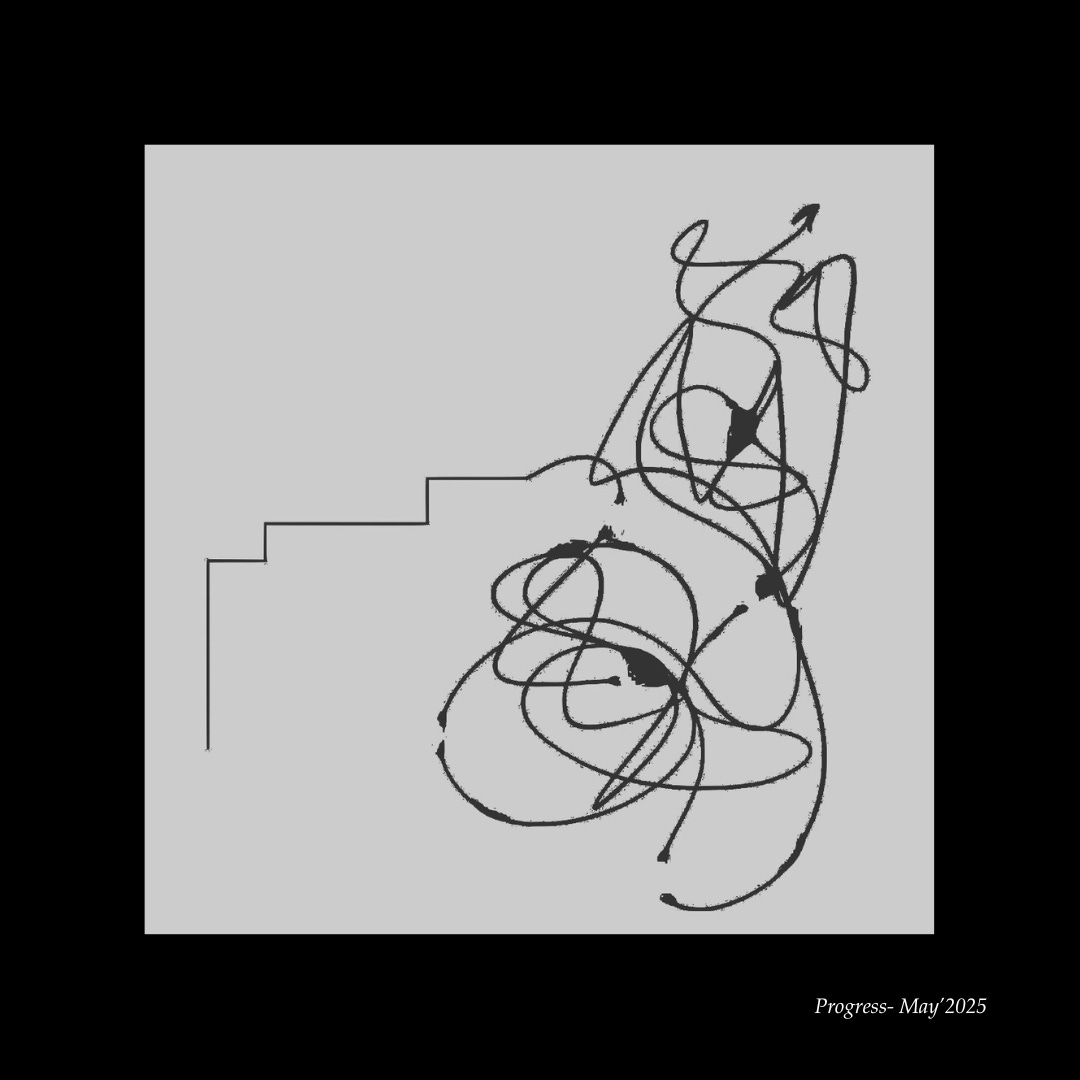The Non-Linearity of Learning a Language
Sometimes you feel like you’re the shit. And sometimes you feel like shit.
Getting excited about learning a language is one of the those feelings everyone should experience at least once in their lives. There’s this burst of curiosity pulling you through the unknown—a desire to understand more and more, and eventually produce the sounds you’re hearing. Like Alice in Wonderland, it’s a free fall into a rabbit hole full of new ways of seeing life and a broadening sense of self.
It’s SO exciting. You start planning your life around the learning—you listen to podcasts, buy books about it, and bore your friends to death with your passionate lectures. What a sweet, innocent thrill.
Unfortunately, it doesn’t take long before the first reality check hits you: “This is more complex than I thought, and now I’m scared by how many different things I have to learn.”
Congratulations—you’ve broken through the first stage of learning.
Some years ago, I stumbled upon the “4 Stages of Mastery” model by Broadwell, and it enlightened me about some things I was experiencing. It might sound silly, but I had always assumed that time and mastery were directly correlated: as time goes by and you keep practicing, you just get better. There’s some truth to that, but I had a very linear image of mastery in my mind—and as it turns out, it just doesn’t work like that. More time invested doesn’t always mean faster progress. And that’s a hard pill to swallow for someone as impatient as me.
The 4 Stages of Mastery (Applied to Language Learning)
Unconscious Incompetence (Ignorance)
You don’t know that you don’t know. Confidence exceeds competence.
“How hard can it be to learn Spanish?”Conscious Incompetence (Awareness)
You realize how much you don’t know. You start seeing the gaps and become more realistic.
“Okay, it’s a bit harder than I thought. I better start learning the basics.”Conscious Competence
You can do it, but only with effort. Most of the work happens in this stage—through practice and experience, you begin to know what you're doing.
“I can now have conversations on a variety of topics in Spanish, but it still takes me a while to figure out what I want to say.”Unconscious Competence
You do it well without thinking.
“I can navigate complex topics with fluidity. I think more about the content than the language itself.”
Dancing Your Way to Mastery
It’s still hard for me to accept that progress isn’t linear. It feels like a paradox. Putting in more effort won’t actually get me there faster?
But learning is a constant battle against your ego—a swing between motivation and overwhelm, sudden “aha!” moments and deep confusion, bursts of self-confidence and waves of self-doubt. And you have to learn to dance to this rhythm.
Some days I don’t have to think much—words just slide out of my mouth. Other days, I’m too ashamed to even mention how many years I’ve been studying the language. I can barely make my mouth muscles pronounce the type of coffee I want to order—and here I am, claiming years of experience.
And this resistance to accept non-linearity has only led me to be very hard on myself. Drowning in textbooks and spending ridiculous amounts of time immersed in input as punishment for not ordering a coffee to the best of my ability. Instead of understanding that there are good and bad days, I would just think to myself: I’m not doing enough.
And paradoxically, the times I’ve felt like I progressed the most in any language were the times when, after a hermit-mode-nerdy-Cris period, I gave myself a break. No planning. No tracking. No goals. Just living. And once I was back at it, it felt like magic. As if my brain had needed that time to process and organize the rules and words.
That’s the art of learning languages. It’s a lifestyle based on letting go and coming back.
It’s messy, weird, and full of paradoxes:
You need to forget words for them to stick.
Doing less is doing more.
You only start speaking fluently once you stop trying to speak perfectly.
The harder you try to memorize everything, the less you retain.
Going from 5% to 30% feels smoother than going from 70% to 71%.
The more obsessed you are with reaching fluency, the longer it takes.
Feeling dumb means you're actually getting smarter.
The less you understand, the more you're learning.
The more confident you feel, the less you may actually know.
And that’s where the beauty of it lies.
I hope this helped you somehow. I hope you can help someone. And I’ll see you in the next one!




